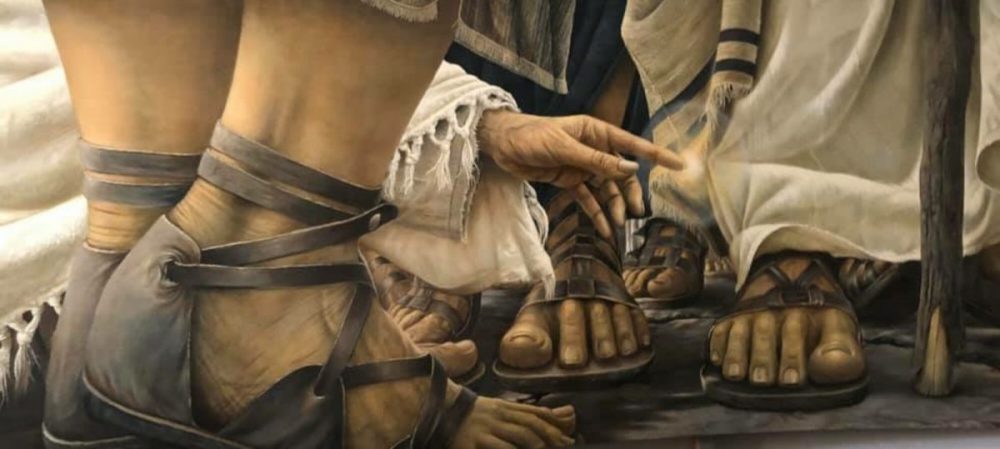
Our church has been reading through the Bible together this year, and as we read through the Book of Numbers, I couldn’t help but think how blessed the nation of Israel was. Numbers 10:33-34 says, “So they set out from the mountain of the Lord and traveled for three days. The ark of the covenant of the Lord went before them during those three days to find them a place to rest. The cloud of the Lord was over them by day when they set out from the camp.” Imagine having a visible Presence of God in a cloud by day and a pillar of fire by night leading you as you travel (Num. 9:15-23).
The Lord also provided manna every morning during their forty-year journey (Ex. 16:13-21). He miraculously brought water out of a rock (Ex. 17:1-7) when they were thirsty. Their shoes and clothes never wore out (Deut. 29:5), and God gave them victory over all their enemies (Ex. 17:8-16; Deut. 20:1-4). When one considers all that God did for Israel, one would think that they would be grateful and respond to Him with love, appreciation, and obedience.
However, as we read through the books of Moses (Genesis through Deuteronomy), we see that Israel was not grateful at all. Instead, they were constantly complaining. They complained about the manna God was miraculously providing every morning stating that they longed for the food they had in Egypt (Num. 11:4-6). They constantly complained about the lack of water (Num. 20:2-5). And, they complained about the leadership: Miriam and Aaron felt Moses was too prideful and that God could speak through them also (Num. 12:1-4). Korah desired Aaron’s position (Num. 16:1-3, 8-11). And Dathan and Abiram felt that Moses made promises that he wasn’t fulfilling. Their expectations were not being met (Num. 16:12-14).
What was the reason for all the complaining instead of being grateful for all God had done for them? I believe it was a lack of trust. Their relationship with God was second-hand with Moses as the mediator (Ex. 20:18-19; Deut. 5:5, 23-27). As a result, they did not know God intimately and they were not able to build a relationship of trust as Moses had. They only saw God as the One to rescue them from their problems, take care of them, meet their needs, and bring them into a better place. In other words, they followed God, not because they wanted to be with Him as Moses did (Ex. 33:1-3, 12-16), but only because they thought He could make their lives better. But, when those needs were not being met as they felt they should be, or their expectations were not being met, they questioned God and began to complain about the job He was doing. Many of them even gave up and wanted to return to their former life of slavery back in Egypt.
This brings up the question that I posted in the title of this article. Why are you a Christian? Are you, like Israel, following God only because you were told that He can save you from your problems, take care of you, and bring you to a better place? Or do you follow Him, as Moses did, because you want to be with Him whether you receive any blessings from Him or not? You see if we are only following God for what He can do for us, then it is easy to fall into the trap of grumbling and complaining when His performance does not match our expectations. We can even feel that following God is not worth it and decide to return to our old life. However, if our desire is to be in His Presence, then it doesn’t matter what happens to us so long as we are with Him.
In Exodus 33, God told Moses to take the people of Israel from the mountain and go to the land of promise. He would send an angel before them to drive out the inhabitants of the land, and they would experience God’s promised blessings. However, His Presence would not go with them (Ex. 33:1-3). Moses interceded for the people, though, and said, “If your Presence does not go with us, do not send us up from here” (Ex. 33:15). Right after this, Moses asked God to show him His glory (Ex. 33:18). You see, Moses’ desire was for God Himself and not just for what God could do for him. I would challenge you to sincerely ask yourself, why am I a Christian? Why am I following God? Do you follow Him because you want to be with Him, or only for what He can do for you? If you truly want to experience His Presence as Moses did, then do what Moses did—pray for God to reveal His glory/Presence to you. Ask Him to fill you with His Holy Spirit and to give you a passion for more of Him. Draw near to Him, and He will draw near to you (James 4:8) because that is what He wants also.

